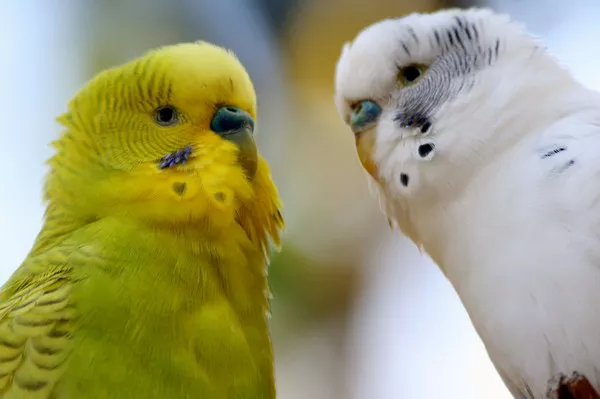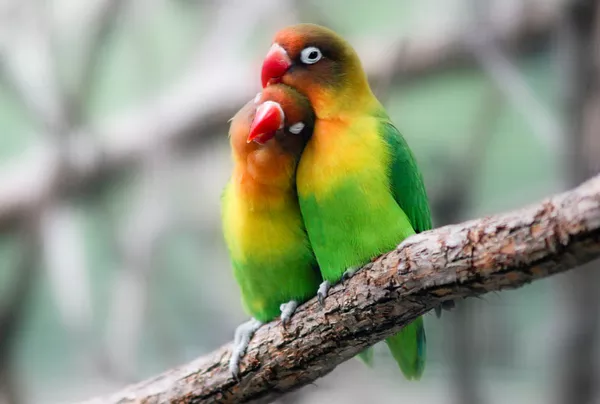Sun conures, with their vibrant plumage and lively personalities, are among the most popular pet parrots. Native to northeastern South America, these medium-sized parrots are known for their playful nature, intelligence, and striking yellow, orange, and green feathers. As a pet owner, it’s essential to understand what sun conures should and shouldn’t eat, ensuring their health and well-being.
When feeding sun conures, a balanced diet of fresh fruits, vegetables, seeds, and pellets is crucial. However, there are certain foods that can be harmful or toxic to them. This article will explore the foods that sun conures should avoid, discussing potential risks and providing tips on how to maintain a healthy diet for your pet parrot.
Why is Diet Important for Sun Conures?
A proper diet is vital for the health of sun conures. These birds have sensitive digestive systems, and what they eat can greatly impact their physical and mental well-being. In the wild, they primarily eat fruits, seeds, and berries, but as pets, their diet needs to be managed carefully. Offering the right foods helps prevent malnutrition, obesity, digestive problems, and even more severe health issues.
Understanding what sun conures cannot eat is just as important as knowing what they should eat. The wrong food can lead to various issues, ranging from mild digestive discomfort to life-threatening conditions. Therefore, it’s essential to be aware of the foods that could be dangerous to your feathered friend.
Common Foods Sun Conures Should Not Eat
Here is a list of foods that sun conures should avoid, with explanations of the risks associated with each:
1. Avocado
Avocados are known to be toxic to many bird species, including sun conures. The fruit contains a substance called persin, which is toxic to birds and can cause heart failure, respiratory distress, and even death. While some pets like dogs and cats might tolerate small amounts of avocado, birds should never be given any part of this fruit, including the flesh, skin, or pit.
Risks:
Heart failure: Persin can cause fluid buildup around the heart, leading to heart failure.
Respiratory distress: Avocado consumption can lead to breathing difficulties in birds.
Death: In severe cases, avocado toxicity can be fatal to birds.
2. Chocolate
Chocolate contains theobromine and caffeine, both of which are toxic to birds. Even a small amount of chocolate can cause severe health issues in sun conures. Symptoms of chocolate poisoning include vomiting, diarrhea, seizures, and even death.
Risks:
Seizures and tremors: Theobromine and caffeine can affect the nervous system, leading to seizures.
Heart problems: These substances can cause arrhythmia (irregular heartbeat).
Toxicity: High doses can lead to fatal poisoning.
3. Caffeine (Coffee, Tea, and Energy Drinks)
Like chocolate, caffeine is toxic to birds, including sun conures. Caffeine stimulates the central nervous system, causing increased heart rate, hyperactivity, and potentially fatal toxicity. Sun conures should never be given coffee, tea, energy drinks, or any other products containing caffeine.
Risks:
Hyperactivity and restlessness: Caffeine can lead to overstimulation and anxiety in birds.
Heart palpitations: Caffeine affects the cardiovascular system, leading to irregular heartbeats.
Poisoning: Ingesting even small amounts can be dangerous to sun conures.
4. Onions and Garlic
Onions and garlic contain compounds called thiosulfates, which can cause damage to red blood cells in birds. This can result in hemolytic anemia, a condition in which the body’s red blood cells are destroyed faster than they can be produced. Symptoms of onion or garlic poisoning include lethargy, weakness, and digestive issues.
Risks:
Red blood cell damage: Thiosulfates can destroy red blood cells, leading to anemia.
Digestive distress: Ingesting onions or garlic can cause gastrointestinal upset, including vomiting and diarrhea.
Lethargy and weakness: Anemia caused by the breakdown of red blood cells can lead to weakness and fatigue.
5. Alcohol
Alcohol is highly toxic to birds and should never be given to sun conures under any circumstances. Even a small amount of alcohol can cause severe liver damage, central nervous system depression, and even death. Birds metabolize alcohol much more slowly than humans, making them more vulnerable to its toxic effects.
Risks:
Liver damage: Alcohol can cause liver toxicity and failure in birds.
Central nervous system depression: Alcohol depresses the nervous system, leading to drowsiness, confusion, and in severe cases, coma.
Death: High levels of alcohol intake can lead to fatal poisoning.
6. Salt
Excessive salt is harmful to sun conures and other birds. High sodium levels can cause kidney damage, dehydration, and electrolyte imbalances. Birds that consume too much salt may exhibit symptoms like excessive thirst, urination, lethargy, and even kidney failure.
Risks:
Dehydration: Excess salt can lead to excessive thirst and dehydration.
Kidney damage: Over time, high salt intake can harm the kidneys, leading to long-term health problems.
Electrolyte imbalance: Salt disrupts the balance of electrolytes in the body, causing neurological and muscular issues.
7. Fruit Pits and Seeds (Cherries, Apples, Peaches, etc.)
While many fruits are safe for sun conures, certain fruit pits and seeds can be toxic. Apples, cherries, peaches, apricots, and other stone fruits contain cyanogenic compounds (cyanide), which can be deadly in large amounts. The seeds and pits from these fruits should never be given to sun conures.
Risks:
Cyanide poisoning: Cyanogenic compounds can release cyanide when metabolized, leading to poisoning.
Digestive issues: Fruit pits and seeds can cause blockages in the digestive tract.
Toxicity: Even small amounts of these compounds can be dangerous to birds.
8. Rhubarb
Rhubarb is another food that should never be fed to sun conures. The leaves of the rhubarb plant contain oxalic acid, which can cause kidney failure and digestive issues in birds. Even a small amount of rhubarb can be harmful.
Risks:
Kidney failure: Oxalic acid can cause renal failure in birds.
Digestive upset: Ingesting rhubarb can cause vomiting, diarrhea, and abdominal pain.
Toxicity: The oxalic acid in rhubarb can be fatal in high doses.
9. Xylitol (Artificial Sweeteners)
Xylitol is a sugar substitute commonly found in sugar-free gum, candy, and some baked goods. It is highly toxic to many animals, including sun conures. Even small amounts of xylitol can cause hypoglycemia (low blood sugar), liver failure, and death.
Risks:
Hypoglycemia: Xylitol causes a rapid release of insulin, leading to dangerously low blood sugar levels.
Liver failure: Xylitol can cause acute liver damage in birds.
Death: Ingesting xylitol can be fatal if not treated quickly.
10. Tomato Leaves and Green Tomatoes
While ripe tomatoes are generally safe for sun conures, the leaves and unripe green tomatoes contain solanine, a toxic substance that can cause digestive upset and neurological problems. Birds should never be given tomato plants or unripe tomatoes.
Risks:
Toxicity: Solanine poisoning can lead to digestive problems, lethargy, and even death.
Neurological issues: High solanine levels can affect the nervous system, causing tremors and seizures.
Digestive distress: Green tomatoes and tomato leaves can irritate the digestive system.
Safe and Healthy Foods for Sun Conures
While there are many foods to avoid, there are also plenty of healthy and safe options that sun conures can enjoy. A balanced diet should include:
Fresh fruits: Apples, pears, bananas, grapes, and berries are all safe and nutritious options.
Fresh vegetables: Carrots, leafy greens (like kale and spinach), broccoli, and bell peppers provide essential vitamins and minerals.
Nuts and seeds: Sunflower seeds, almonds, and walnuts can be given in moderation as treats.
Pellets: A high-quality pellet formulated for parrots can provide the necessary nutrients to keep your sun conure healthy.
Cooked grains: Brown rice, quinoa, and oatmeal are excellent sources of fiber and energy.
Conclusion
Sun conures are delightful, intelligent, and affectionate birds, but as with any pet, it’s essential to take proper care of their dietary needs. While they can enjoy a wide variety of foods, there are certain foods that are dangerous or toxic to them, such as avocado, chocolate, caffeine, onions, and alcohol.
By understanding what sun conures cannot eat, pet owners can create a safe and healthy environment for their feathered friends. Always be cautious when offering new foods and consult with an avian vet if you’re unsure about a particular food. A well-balanced diet, rich in fruits, vegetables, and quality pellets, will help keep your sun conure healthy, happy, and thriving for years to come.
Related Topics:

























